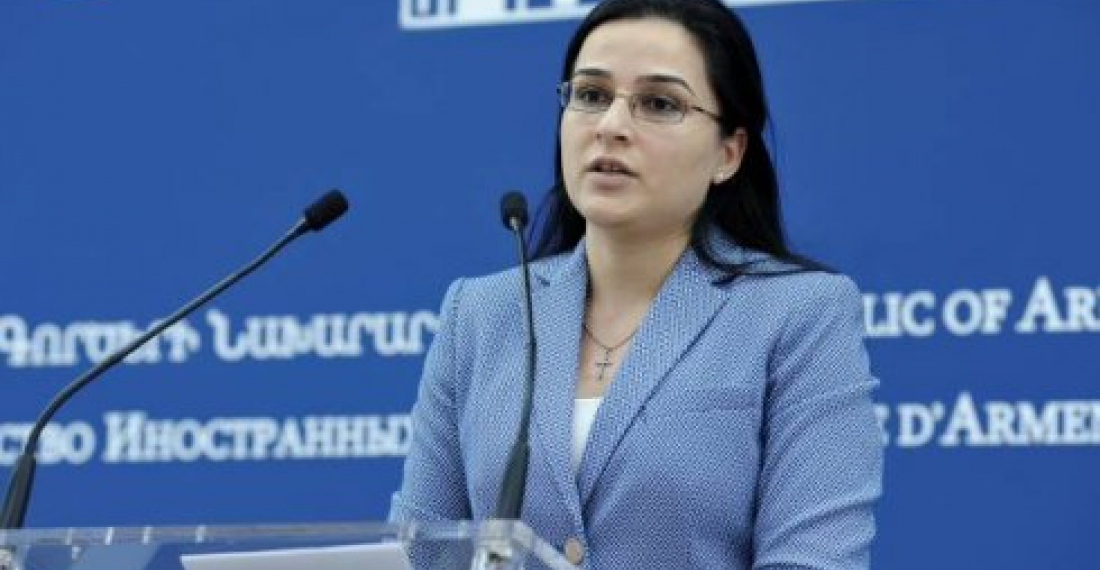Armenia will veto any application by Azerbaijan to join the the Collective Security Treaty Organization (CSTO) and the Eurasian Economic Union (EAEU). This was stated on Tuesday (28 August) by the acting spokesperson of the Armenian Foreign Ministry, Anna Naghdalyan.
Naghdalyan said that speculation about Azerbaijan seeking membership of the two structures are taking place in think tanks. "I will express the official position of Armenia's foreign ministry. If such issue is considered, Armenia will use its right to veto", she said.
The acting spokesperson clarified that the decisions in the CSTO and EAEU are made on consensus basis. "We have expressed our stance on this matter, and that stance doesn't give rise to ambiguity. That stance has been clearly stated by foreign minister Zohrab Mnatsakanyan", she said.
related content: Is Azerbaijan considering joining the CSTO?
source: commonspace.eu with agencies
photo: Armenian Foreign Ministry acting spokesperson Anna Naghdalyan (picture courtesy of Armenpress, Yerevan)







